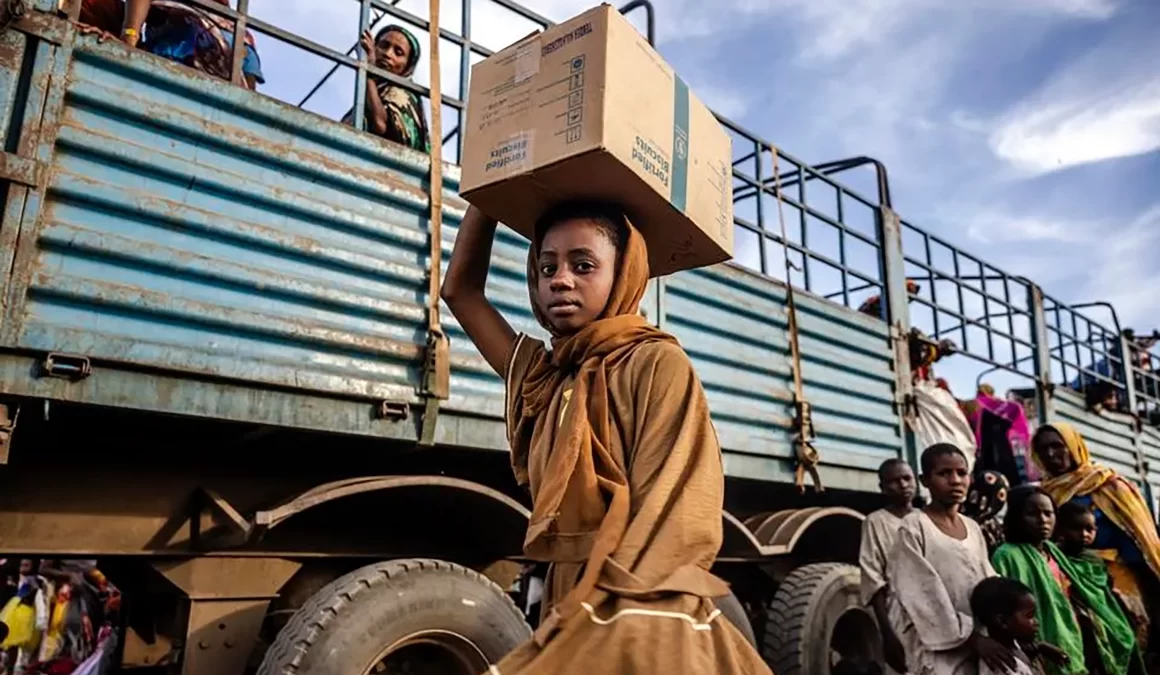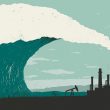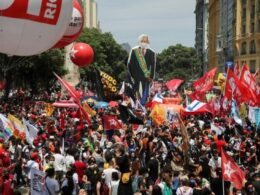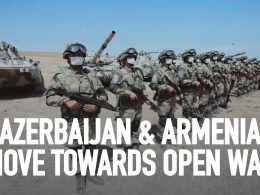By James McCabe
If you’ve taken part in a protest against the genocide in Gaza you’ll have shouted the solidarity chant “We are all Palestinians”. In 2019, a mass revolutionary movement erupted in Sudan under the central slogan “We are all Darfur”. This slogan encapsulated the grievances of many sections of Sudanese society against the Sudanese state and ruling class.
Darfur in western Sudan is rich in natural resources such as gold and iron ore. These resources are extracted from the region, enriching multinational corporations, the central government and the ruling class based in Khartoum. However, like other peripheral regions of Sudan, Darfur’s people have received very little investment in public services as compensation.
Legacy of colonialism
Under British colonial rule, Sudan was used as a source of cotton production. Like other parts of its ‘empire’, the British ruling class institutionalised ethnic, racial, religious and regional separation in a ‘divide and rule’ tactic to control the Sudanese population. The British fostered white supremacy across the colonies, Brahmin supremacy in India, Protestant supremacy in Ireland and Arab and Muslim supremacy in Sudan. After decades of British rule, Darfur only had one primary school in 1935 and no maternity clinics until well into the 1940s.
In postcolonial Sudan, the brutal dictatorship of Omar al-Bashir leaned on ideas of Arab supremacy to scapegoat the underdeveloped Darfur region and its indigenous African farming population for the economic problems of the country. The racism of al-Bashir’s regime culminated in the Darfur genocide that saw 300,000 women, children and men killed there by 2010. Al-Bashir’s dictatorship also scapegoated the South Sudanese people before and after the independence of South Sudan was achieved in 2011.
Although South Sudan contains 75% of the oil resources of pre-partition Sudan, there are no oil refineries in South Sudan due to its history of underinvestment. Therefore, South Sudan is at an enormous disadvantage where oil is sold to Sudan and multinational oil companies at low prices while ordinary South Sudanese people have to pay extortionately inflated sums for access to imported petrol. South Sudan is in a very precarious condition with a 66% illiteracy rate, a major cost of living crisis and the spillover impact of the war currently raging in Sudan.
Reject the scapegoating of oppressed groups
The “We are all Darfur” chant contained the idea that the movement of the Sudanese masses against the dictatorship would not be broken by bigotry, racism, misogyny, or other ‘divide and rule’ tactics. This movement coincided with a military coup that ousted al-Bashir. Unfortunately, the new imperialist-backed regime that came to power didn’t represent a change. An uneasy alliance was established between Rapid Support Forces (RSF) militia leader, Hemedti and Sudanese Armed Forces (SAF) leader Abdel Fattah al-Burhan. The breakdown of this alliance has resulted in a devastating war whose primary victims are civilians across Sudan from Khartoum to Darfur.
There’s little that politically separates Hemedti and al-Burhan. Their war is driven primarily by their conflicting interests for more power, wealth and prestige for themselves and their followers. As it stands, the war has displaced 10 million people, the healthcare system has collapsed, and 26 million people are experiencing acute hunger.
No to imperialist plundering
While these catastrophic conditions create incalculable levels of trauma for the people of Sudan, the imperialist states are calculating the benefits that they can accrue from the situation. Sudan’s oil, gold, iron ore and rich arable land combined with its important coastline on the Red Sea present a lucrative prize for whichever imperialist state can gain maximum influence in the region. Russia and the United Arab Emirates have given military guidance and arms to Hemedti’s RSF while Egypt and Saudi Arabia – both closely aligned with Western Imperialism – are backing al-Burhan’s SAF.
We are all Sudanese
The Western media are failing to cover this humanitarian disaster as it unfolds in real time. In the mid-2000s, Hollywood celebrities campaigned to bring attention to the genocide in Darfur. Angelina Jolie and George Clooney led well-intentioned fundraising work albeit under the quite paternalistic banner of the “Save Darfur” campaign.
Today the militant spirit and direct action methods of the pro-Palestine international movement of workers and young people can be applied to a global struggle in solidarity with the Sudanese masses. This struggle must centre the power of the masses in Sudan to resist – as they did in 2019 – and overthrow the rule of the military, imperialism and capitalism. The country’s wealth could finally be used for the benefit of all in a socialist Sudan.












